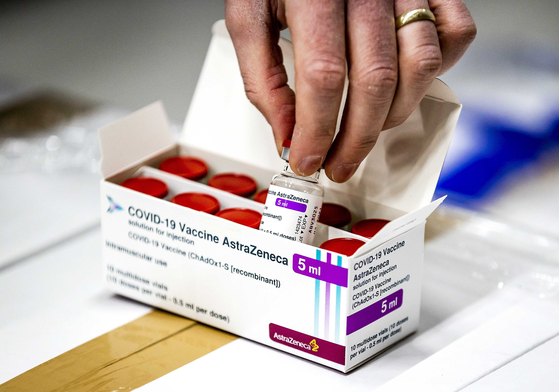34,000 people over the age of 18
100% effective in preventing severe and hospitalization
“The risk of blood clots doesn’t increase”
“U.S. FDA emergency license application plan”
The results of a large-scale clinical trial conducted by AstraZeneca in the U.S. for its vaccine have been released. In this trial, the AstraZeneca vaccine was found to be 79% effective in preventing COVID-19. In addition, it showed 100% efficacy in preventing serious or hospitalization after infection.
 Source = EPA Yonhap News
Source = EPA Yonhap News32,449 people over the age of 18 participated in this clinical trial. Races and ages varied. Caucasians accounted for 79%, followed by African Americans at 8% and Asians at 4%. More than 20% of the participants were 65 years of age or older, and about 60% had underlying diseases such as diabetes and cardiovascular disease.
Vaccine efficacy did not differ by race or age. In particular, AstraZeneca stressed that “the vaccine efficacy was 80% for people over 65 years old.” Earlier, the AstraZeneca vaccine has been evaluated as not being sufficiently effective against the age of 65 years or older. Researchers at the Rochester Medical School in the United States, who conducted the study together, said, “For the first time, similar efficacy has been confirmed for people over the age of 65.”
 Source = AFP Yonhap News
Source = AFP Yonhap NewsWe concluded that there was no problem with safety as well as efficacy. The same was true for the risk of blood clots. The Data Safety Review Committee (DSMB) reported that “a review of thrombosis and cerebral sinus thrombosis (CVST) did not find any increased risk associated with thrombosis in people who received at least one vaccine.”
However, some point out that the number of subjects to be investigated is insufficient for the relationship with blood clot-related diseases such as cerebral sinus thrombosis. This study involved 30,000 people, because according to the quarantine authorities, the spontaneous incidence of cerebral sinus thrombosis is less than 5 per million.
Nevertheless, these results are likely to help restore confidence in the AstraZeneca vaccine. AstraZeneca said, “We plan to go through the process of applying for an emergency use permit with the Food and Drug Administration (FDA) within the next few weeks.”
